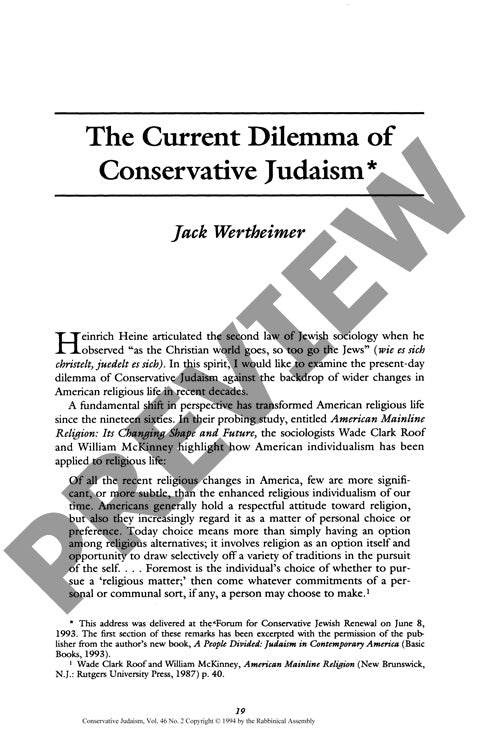The Current Dilemma of Conservative Juda
Couldn't load pickup availability
Conservative Judaism stands at a crossroads, caught between the pull of American individualism and its traditional commitment to communal obligation and Jewish law. Since the 1960s, religious life in America has undergone a profound transformation, with personal choice increasingly superseding established religious structures and group identities. Through comparative analysis of religious movements and sociological observation, drawing particularly on Roof and McKinney's research, this investigation reveals how the rise of egalitarian ideals and individual autonomy has fundamentally reshaped Jewish denominational boundaries. Demands for women's equality, gay rights, and patrilineal descent within Jewish movements emerge as clear manifestations of broader American individualistic values. Conservative Judaism now faces a critical decision: whether to follow Reform and Reconstructionist movements in accommodating these cultural trends or maintain resistance to certain aspects of American religious individualism. The movement must reassert its commitment to halakhic principles and normative obligations while developing new theological vocabulary to navigate tensions between tradition and change. A strategic realignment of denominational relationships is proposed, suggesting closer alignment with Orthodox positions on select issues while maintaining distinct Conservative identity. This approach ultimately argues for preserving Judaism's character as "a people set apart" with distinctive obligations rather than reducing religious practice to purely individual choice.

More Information
-
Physical Description
-
Publication Information
Published 1994
ISBN
-
Publication Credits
Jack Wertheimer

